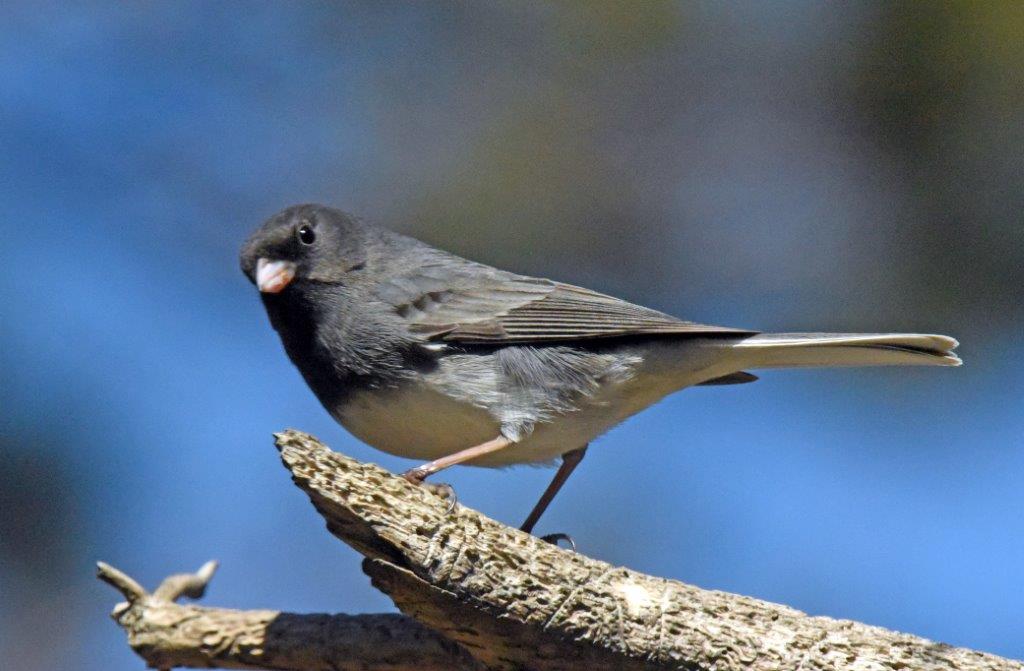Daily Updates
Spanky, a Correction, and RC’s Injured Yearling - UPDATE April 19, 2021
19 April 2021
Print Email
Dark eyed junco (WRI file photo)
Dark eyed junco (WRI file photo)

Spanky has now been gone for three days again. Does this mean he is truly gone, or will he come back again like he did after the 3 days of absence when we took the camera down on the 13th. Now, since 2:16 AM on April 16, there has been no sign of him. I’ve been checking the trail cam near his den, and I’ve repeatedly peeked in his den in case the trail cam missed something. This morning, I wondered if he might be back due to the snowfall, but he wasn’t. No tracks and no bear. We’ll see what we find in the next few days.
Checking around his den, I noticed that I made a mistake in saying he had climbed 12 feet up the little red pine to mark it. The highest FRESH markings are about 6 feet. The higher ones are old. I wonder if he has denned under this porch before during his 6 years of life.
Regarding the injured yearling, a trail cam here at the WRI showed it eating and chewing alongside his mother like any other bear. No sign of pain. No sign of infection. Black bears are highly successful in fighting infection.
I’ve thought how to help it and think the best thing is to provide food and see how it does. I don’t see how a veterinarian could help with its missing lips and eyelids. If it were in pain, euthanasia might be humane, but my permit does not allow that or taking it to a veterinarian. Anything I would consider doing I would do in concert with the DNR. Its lack of lips means it will have to pick berries with its teeth. When it was eating grass, it was biting the grass just like its siblings. If it hangs around here after family break-up in a month or so, everyone will do all they can. We’ll see what the natural outcome turns out to be. Decades ago, I think in 1985, I watched an adult bear getting by and eating okay with a missing nose pad and lips much like this yearling. But it’s sad to see an animal hampered like this.
Thank you for all you do.
Lynn Rogers, Biologist, Wildlife Research Institute and North American Bear Center

 Author
Topic: Jewel and her cubs (Read 2380099 times)
Author
Topic: Jewel and her cubs (Read 2380099 times)
